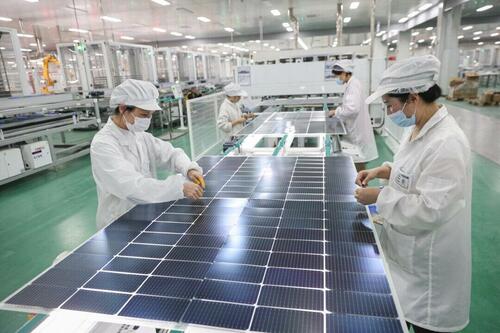China's aggressive pursuit of green technology has been a cornerstone of its economic strategy, intertwining environmental goals with political ambitions. The Chinese Communist Party (CCP) has leveraged the global shift towards renewable energy to enhance its geopolitical standing, aiming to weaken Western energy infrastructures while establishing dominance in green technology markets. With investments soaring to $890 billion in 2023, China now leads the world in solar panel, electric vehicle, and lithium-ion battery production. However, this reliance on green subsidies, particularly from the West, poses significant risks as scientific scrutiny of climate policies grows, potentially undermining the very foundation of China's green ambitions.
The implications of shifting U.S. climate policies, particularly under the Trump administration, could be dire for China's green economy. The recent findings suggesting that the economic impacts of carbon dioxide emissions may be overstated challenge the rationale for extensive green subsidies. As the U.S. moves towards repealing the carbon dioxide endangerment finding, the sustainability of China's green investments comes into question. The potential loss of U.S. subsidies could lead to significant economic repercussions, as evidenced by reports of major solar firms in China shedding a third of their workforce. This scenario underscores the precarious balance China must maintain between its green aspirations and the evolving global energy landscape.









